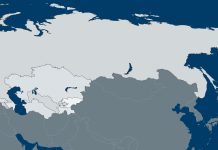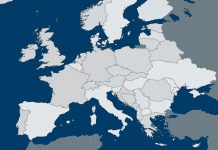Last week’s election in the Netherlands produced a radical change. Traditionally, the Netherlands is among the most classically liberal states in Europe. But in a vote whose focus was immigration and climate change, Geert Wilders and his Party for Freedom came out on top, though short of a majority. Governments in marginal member states in the European Union, such as Hungary, have taken similar stances in the past (particularly on immigration), but the Netherlands is a founding member of the EU and despite its small size, it has always been at the center of shaping and representing the bloc’s values. In times of economic disparity and division, the willingness of key EU members to stand together to defend certain core moral principles has held the bloc together.
However, the results of the Dutch election repudiated two core principles of the European Union. They may also give the Netherlands an economic advantage in Europe. Fighting climate change is an existential and moral imperative, but it is also expensive, dramatically raising the cost of production on a range of products. Meanwhile, curbs on immigration – particularly when the immigrants are low-skilled and come from a very different culture – will likely cut public costs on supporting immigrants.
These apparent economic perks are important, but they are not the critical thing to watch coming out of the Dutch election. In the Netherlands and elsewhere, proponents of fighting climate change or welcoming immigrants have tended to justify their positions by asserting moral and economic benefits. Critics and challengers have at times been met with not careful refutation but a kind of moral shaming, implying that the questions themselves are a sign of moral corruption.
It is in this sense that last week’s election has significance. In many ways, the Netherlands has been a core nation in the European Union. Years ago when I lived in the Netherlands, it was assumed – and I believed it true – that the country exemplified how a European nation should be (especially toward NATO). Yet, the outcome of this latest election might legitimize doubts about prevailing policies on climate change and immigration in ways that similar past election results in Poland or Italy could not. In time, the Netherlands could lose its reputation as a model European country, but it is also possible that a new definition of European virtue could emerge. Perhaps in the distant future, a redefined Europe will trace its beginnings back to this election.
On the other hand, Wilders and his party might be mistaken in their policies toward climate change and immigration. I don’t have the scientific background to have an informed opinion on global warming, though I distrust any belief passionately held by people who know as little as I do. I do know a little about demographics, particularly that the developed world is facing a worsening shortage of workers. Among the options we have are to force 80-year-olds to do menial labor, invent cost-effective robotic substitutes for humans, or bring in foreign workers. In the U.S., immigration has been the solution since the Mayflower’s passengers arrived. But foreigners tend to have distinct cultures that can clash with the host country’s values, and in some circumstances – particularly when there are large influxes of immigrants – there are bound to be criminals among the new arrivals. Compared with the other choices, however, immigration seems to work.
The shift in the Netherlands, if it holds and spreads, will make Europe a very different place not only on these matters but also with respect to its political culture and the idea that Europe is a single entity. Or I will have to avoid Europe, lest I be forced to prepare and eat their wretched sausages. Safety first; I will stay in Texas.






 Special Collection – The Middle East
Special Collection – The Middle East